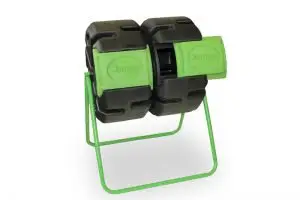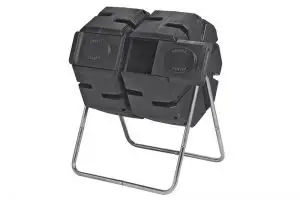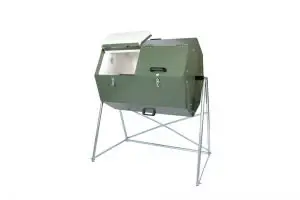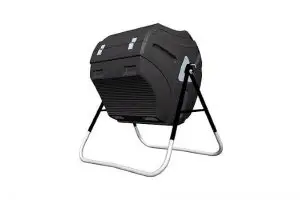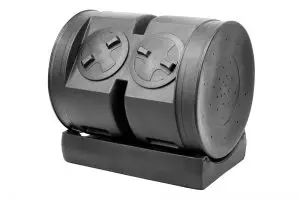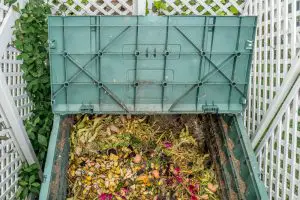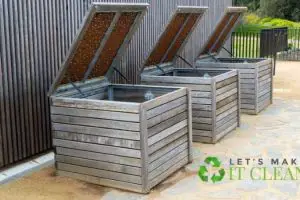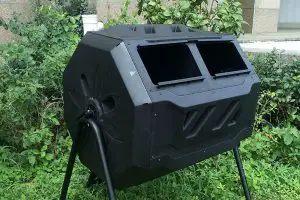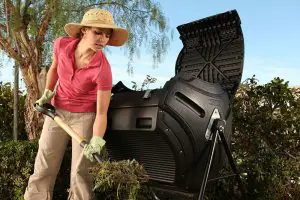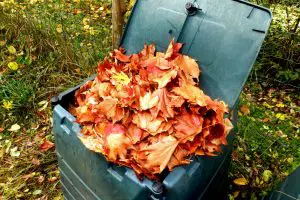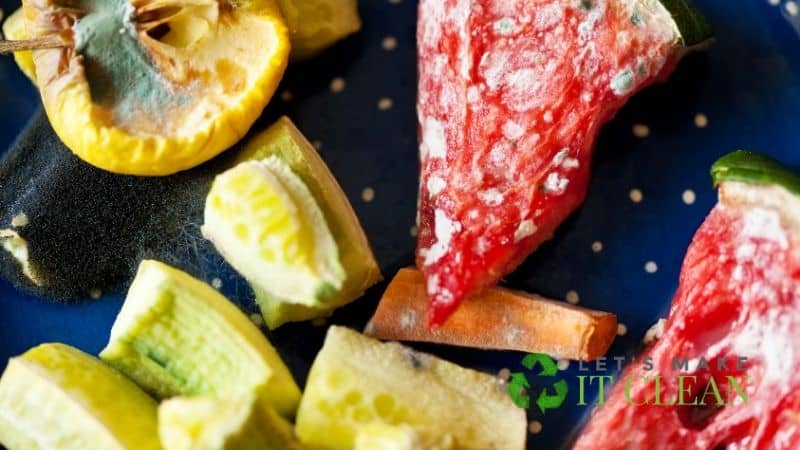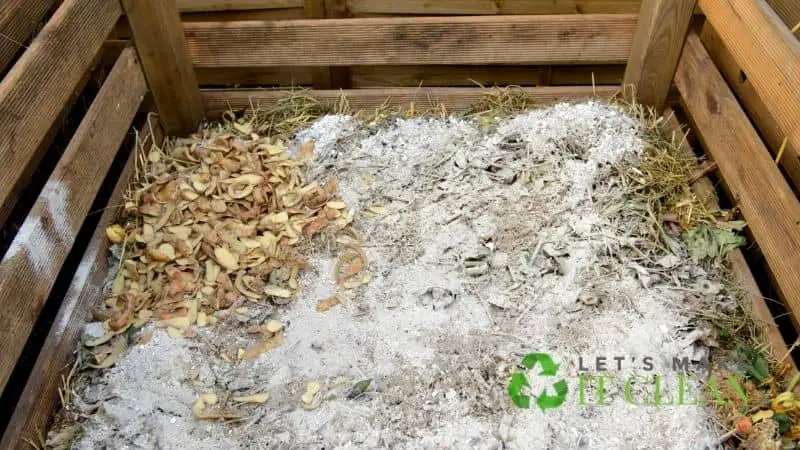Are you lost on the difference between compost and mulch? Here is a comprehensive guide that simplifies the two to get rid of the confusion.
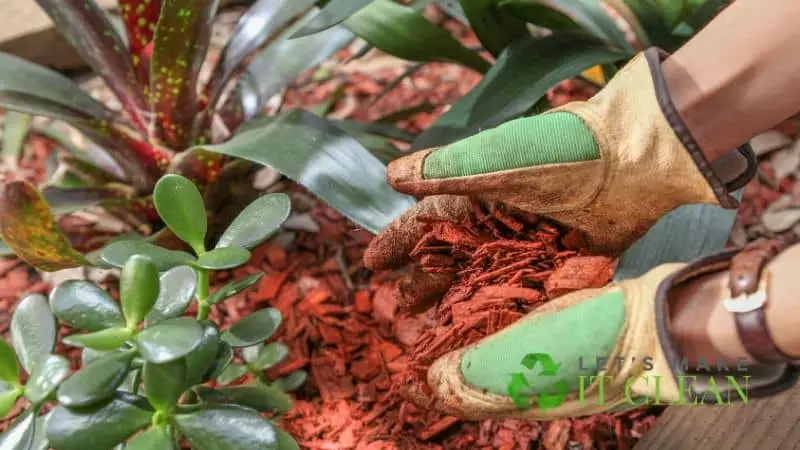
What do you get when you compost organic materials, including kitchen waste, leaves, garden waste, and other organic matter types?
What do you call the layer of organic materials that gardeners use as a protective layer on the top layer of their garden soil?
Quick Navigation
Most people, including experienced gardeners, use the terms compost and mulch interchangeably. But the two are different.
However, compost is one type of mulch that a gardener can use in their garden, yard, or flower beds. Apart from offering a protective cover and the other benefits of inorganic mulch, compost also provides nutrients.
It enriches your soul with nitrogen and carbon nutrients, which are essential for plant growth and soil conditioning.
So, What Is the Difference Between Compost and Mulch?
Many farmers use the word mulch when referring to compost and compost when referring to mulch. It becomes more confusing as you can use compost as mulch, and mulch can have the effects of compost on your soils.
So, what is the difference between these two? Let’s dive in!
What Is Compost?
Compost is the result after decomposing organic matter in your home or in a composting facility. It is the product you get after aerobic microorganisms have decomposed organic materials like manure, yard waste, food scraps, organic garden waste, shredded newspaper, paper products, lawn clippings, etc. Some farmers use mulch as a soil conditioner.
You can have a compost bin, pile, or tumbler at home where you can add layers of organic compost materials such as plants, coffee grounds, banana peels, grass clippings, and the tube you left after using a tube of toilet paper (This makes me think: Is it ok to use toilet paper in a composting toilet?).
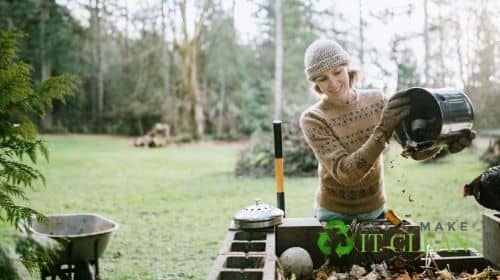
It would help if you kept turning and stirring your compost to speed up the decomposition process. It would also help if you kept an eye on the mixture in the pile to ensure it is the proper ratio. The compost pile’s proper ratio should be two parts of brown compost to one part of the green compost.
Brown compost includes materials such as leaves, straw, paper, and dried grass. Green material includes fresh grass clippings, most kitchen scraps, and freshly picked garden weeds.
You can also fasten the process by watering the pile often to keep it moist but not wet.
Compost that has broken down fully is called humus, and it has a dark-brown color and a mild pleasant smell.
Uses for Compost
Finished compost has a variety of uses. For instance, you can dig it, mix it, and add it into garden beds as you turn the soil over. You can also add it to the hole while planting.
If you want to add compost in the hole while planting, make sure to mix it with soil. The roots of a plant have a challenge getting through regular garden soils after being in pure compost.
You can also use the humus to side-dress plants that are already in the ground.
Additionally, you can use compost to mulch your garden landscape. Instead of buying wood chips, it will be less expensive to use kitchen waste and yard trimmings or plants, which are free.
Using Compost as Garden Mulch
Using compost for mulching your garden offers you tons of benefits you get from non-organic mulch.
Additionally, you get the benefit of nutrients leaching into your soil that you wouldn’t get from non-organic mulching. As irrigation or rainwater runs through the organic mulch, it washes down small doses of nutrients to improve the soil structure and condition.
A thicker layer of compost mulch will be better as it helps to deter potential weeds and unwanted plants. You should have about one to four-inch layer of compost mulch, and it should spread about a foot around the plant.
If you use compost as garden mulch, it will enrich it with nutrients. However, if it becomes dry, it won’t be the best environment for the plants’ roots in your gardens.
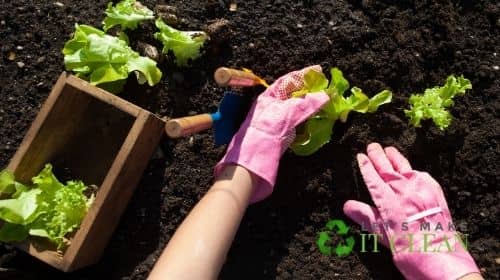
It will help if you use a thin layer of mulch as compost and top it with another mulch, such as wood chips. That way, the compost will remain moist and biologically active. The soil temperature will also remain optimum.
There are other benefits of using compost as mulch instead of non-organic mulch. For instance, waste materials that would have ended up in the landfill and become an environmental hazard are repurposed to become useful.
The kitchen waste, including fruit peels, eggshells, tea bags, and paper towels, can be used in the compost pile. You can also add other household items such as human and animal hair, cotton balls, and pencil shavings.
When Should You Use Compost as Mulch?
Should you use mulch as compost all year round? You can have the compost mulch covering the plants during the months of winter. It may help to protect the plants from the severe conditions of snow and ice.
Once it’s springtime, you can remove the compost to allow sunlight to warm the ground.
What Is Mulch?
Mulch is an organic material layer that you place on top of the soil as a protective cover.
The protective cover helps to insulate the soil during cold weather, suppress weeds, lock in valuable moisture, and reduce soil erosion caused by wind and rain.
Mulch also improves your soil quality as the organic materials break down with time to improve the soil quality.
You should apply mulch heavily on garden beds throughout the gardening season. You can go for lawn grass clippings or straw.
You can use an electric shredder for the job, although a lawnmower can also do a commendable job.
If you want to mulch perennial beds, cedar chips would be an excellent option. It is a perfect choice to keep for several seasons as it breaks down slowly. It also has a pleasant smell, and it also keeps away garden pests.
What Is the Difference Between Compost and Mulch?
One of the differences between mulch and compost is in the location in which each benefits your garden soil. For instance, compost benefits the soil by getting within the soil while mulch works on top of the soil.
Compost is tilled in the soil as an additive to add nutrients that benefit plants and organisms that dwell in the soil. The earthworms will feed on the compost as they also dig holes in the soil. This helps to aerate the soil (you can also use a compost aerator) while also loosening it, making it ideal for roots to spread.
On the other hand, you apply mulch on top of the soil, which helps to lock in moisture. Mulch also leaches some nutrients into the soil, though not in high quantities as compost does.
It would be best if you reapplied mulch periodically as it is subject to decay.
Is Compost or Mulch Better?
The best choice between the two will depend on your goal. If the goal is to enhance your plants’ production, make flowers bloom better, and encourage faster growth, compost will be the best option.
Alternatively, soil mulch will be a better option if you want to prevent soil erosion, limit weeds’ growth, and retain moisture on the soil surface.
Different Types of Mulch for Your Garden
There are two types of mulch, which include organic and inorganic. Both types help in surprising weeds.
Organic mulch comes from organic materials used in the composting process. These ingredients include pine needles, sawdust, lawn clippings, grass clippings, shredded bark from plants, and wood chips.
On the other hand, inorganic mulches include landscape fabrics such as geotextiles and black plastic.
Black plastic is advantageous, especially when dealing with eggplants and cherry tomatoes that do well with some warmth during the night. The black plastic absorbs heat during the day, which helps to stay warm during the night.
Organic mulch helps in adding useful nutrients to the soil in your gardens.
Different types of mulch have different functions. For instance:
Shredded Leaves and Wood Chips
You can use a lawnmower or an electric trimmer to shred the fallen leaves from plants in your compound. A mixture of shredded leaves and wood chips are perfect ingredients on the shrub borders, flower beds, and your farm pathways.
However, the combination is not ideal for the plants in a vegetable garden as it requires tilling and digging, and the wood chips can be a challenge.
Landscape Fabrics
Landscape fabrics, also known as geotextiles, are an excellent choice for mulches as they let in air and water but prevent weeds from growing. However, they are not good-looking, and you should cover them with another type of mulches.
They also degrade over time, and shrub roots can grow into the fabrics, which will cause problems when you want to remove the fabrics.
Compost Mulch
Compost also makes a nutrient-rich leaf mulch. It will be best to use a thin layer of compost and then cover it with another mulch type, such as shredded leaves. This helps to keep the compost moist and biologically active.
Grass Clippings Mulch
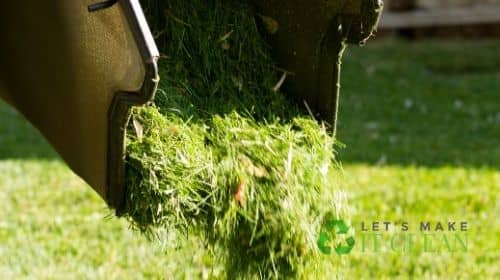
Grass clippings in a vegetable garden are an excellent choice for mulch. Mulch from the grass clippings is rich in nitrogen, which is an essential nutrient for vegetables to thrive.
However, don’t take away all the grass clippings from your lawn as they serve as a natural fertilizer that keeps the lawns green and healthy.
Conclusion
Many people, including long-time gardeners, confuse compost and mulch. One will use the word compost while referring to mulch and vice versa. The two are similar in that you can use them to retain moisture in the soil.
However, mulch is used specifically to prevent soil erosion, retain moisture, and prevent weeds’ growth. In addition to these benefits, compost adds useful nutrients to the soil. Use the gardening tips in this article to improve the soil conditions in your farm for better yields.

